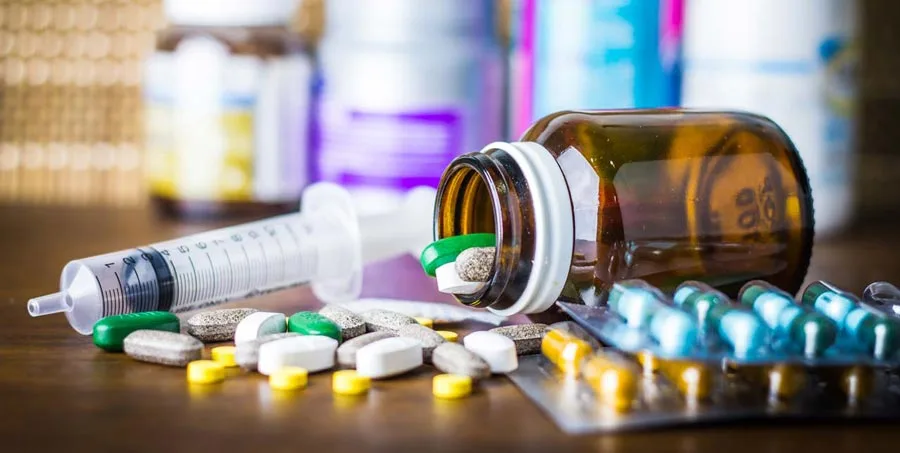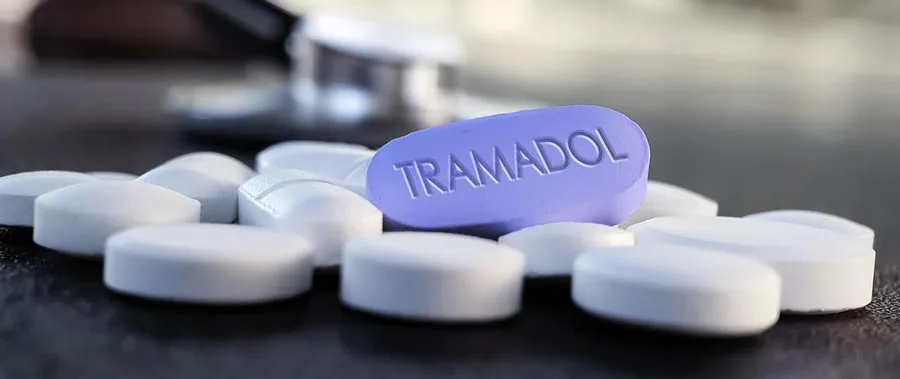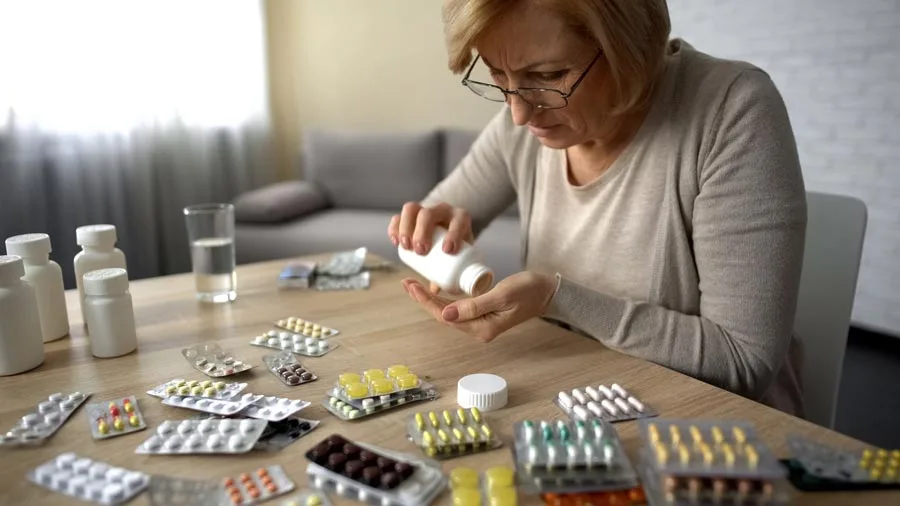What is Prescription Drug Addiction?
An article by the NIH states that one reason people start to use drugs is to feel good. One of the scariest things about opioids is that your doctor might prescribe them for a legitimate reason. Maybe you have chronic pain. Maybe you had an accident.
Whatever it is, there are legitimate reasons to have an opioid prescription. In this case, you are in enough pain where opioids can be helpful to make you feel ok. It’s an excuse that you find yourself using even when you know you are just using them to get high.
The issue is when the prescription doesn’t fit the injury or cause. Sometimes people are given prescriptions when they don’t need them. They are given prescriptions that are way too much either in milligrams or amount. For example, maybe you are given a 30-day prescription when you only need a 3-day prescription.
Risk Factors for Prescription Drug Abuse
There are many risk factors for addiction. Sometimes past trauma can lead you to developing an addiction. Often if you have a family history of addiction, it can be a contributing factor. Sometimes people can end up being addicted without any of this. It simply starts from being prescribed something and it turns into a larger problem later on down the road.
The warning signs of prescription usage will be very clear if you have any knowledge of addiction. A person may experience mood swings. Shifts in their sleeping habits and changes in appetite are very common. They may become defensive to questioning. Their appearance begins to change.
Common Signs of Drug Misuse
Slurred speech and lack of hand-eye coordination are also prominent features of substance abuse. Long term users also run the risk of developing changes in breathing patterns. High blood pressure is another common symptom. The phases of prescription misuse often look the same for everyone.
You start out using the pills for a legitimate reason. They are prescribed to you for pain or some other ailment. You start to notice the euphoric feeling you get from the drug, and you begin to seek it out. You start using more of the drug. You begin to build a tolerance. You make excuses as to why you need it.
Deceit and Denial in Drug Abuse

Eventually, you begin to believe your own lies and the excuses that you give to people. Once you lie about it enough, it’s easy to believe the lie. If you have an addict in your life, you know all about the lying. The lies become nonstop, and you can’t believe anything that is told to you. You don’t know what is real.
Eventually, you need the drug just to feel normal. You need to use more and more of the drug to get that euphoric feeling. You are always chasing the high. The high becomes the only thing that matters. Before you know it, you’re an addict. By the time you finally realize and admit you have an issue, you are at a point where you can’t get through it alone. Therapy and potential rehab become necessary. It can all seem to happen so quickly even if it develops slowly over time. You don’t see yourself when you’re in it. You adapt to the lifestyle.
Addiction Can Sneak Up on You
I remember in high school when I had my wisdom teeth out, I was prescribed Percocet for 30 days. I don’t think I took any of the pills and ended up selling them to people at school. Sadly, a lot of people might have these stories. When you begin abusing drugs at a young age, it has a tremendous effect on your brain and your overall development. It seems like fun and games at this stage.
Consequences normally do not come into your mind. I had a friend whose life story read very much like a cautionary tale. He began using whatever prescription drugs he could get his hands on from the age of thirteen.
His sister got him addicted. Once he was hooked on pills, she began to say that he couldn’t tell on her because now he was hooked on them. He is now in his 30s and after a track record of getting in trouble finally found a way to function, but not without Suboxone. He has been in and out of the prison system. He is a lifelong felon. When you get to this point in your adult life, it’s very hard to get out of. The system does not make it very easy for people looking to change their ways to succeed. This is an unfortunate truth when it comes to addiction.
Legitimate Reasons for Pill Prescription Gone Wrong
People with chronic pain or that undergo painful surgeries are especially susceptible to opioids. They can be just as helpful as harmful in some cases. My uncle had to amputate his leg due to blood clotting. He was a lifelong smoker. After the surgery, they prescribed him opioids. Once those ran out, he started to use alcohol after a lifetime of being sober to deal with his pain.
We often don’t have the tools or the education to know what we’re getting ourselves into. We learn about the dangers of drugs in school, but they often don’t show you the full picture. They tell you drugs are bad without saying a whole lot else.
I remember being in health class in school and learning about drugs. I don’t remember ever hearing any specifics. It was all just “Drugs are bad and you shouldn’t do them.” They didn’t teach you about the full scope of addiction. What drugs do what. How the drugs slowly take over. How nothing else matters but the drug. I think there is more of an emphasis these days on the specifics, but it seems like to get the full picture of drug abuse, you have to go through recovery to get it.
Withdrawal and Prescription Drug Abuse
You don’t truly learn about withdrawal until you go through it. It’s hard to teach anyone that kind of discomfort unless you feel it for yourself. Some withdrawal symptoms for prescriptions can be fatal. If you try to get off of opiates cold turkey, you will feel an incredible amount of physical discomfort and mental anguish.
This is why it is important to go through a medically supervised detox prior to entering a recovery center. Some of the side effects of prescription abuse can last a lifetime. Many addicts experience lifelong neurological symptoms.
The Dangers of Opioid Addiction

Recovery from prescription misuse is possible. There are so many different treatment options for prescription abuse, and they all vary depending on the person. The one thing that works for everyone is therapy. You have to get to the bottom of what leads you to this point. If you get the right therapy, you will be better equipped to face your addiction head-on and succeed. There are also many holistic and alternative methods that have been helpful to those seeking non-traditional methods.
There is a real danger to addicts if they are not given the proper support. If you know someone struggling with addiction, it’s vital that you educate yourself on the subject and show them compassion. No one ever got sober because they got yelled at about it.
Recovery is a very personal process that requires a lot of help. It’s important to have a network of other people in recovery. I can say for myself that going to meetings has always been a big positive for me.
A Prescription for an Epidemic
One of the reasons the opiate epidemic became an epidemic is people will turn to them if they don’t have access to other drugs like heroin. Opiate addiction has also done the opposite and led people to use cheaper drugs like heroin. When there was more of a crackdown on opioids there was a rise in street heroin. It’s a very tricky cycle to get stuck into and it’s pretty frightening to think that it can all begin from a trip to the doctor.
The point in sharing these stories is that people don’t grow up saying that they want to be an opioid addict. It’s not a dream. It’s not planned. It sneaks up on you.
Violations of Trust and the Hippocratic Oath
It is confusing that a doctor would prescribe opioids that could ultimately harm you and ruin your life. It is confusing that the same thing you take for unbearable pain can cause you unbearable pain. It is confusing that someone you trust might suggest that you do something you know to be harmful.
You cannot prevent yourself sometimes from the things that happen. You can find ways to avoid them. If you do find yourself in a situation where you are going down a bad road, there are plenty of ways to get help. Speaking with a professional would be a good start. Expressing concern to loved ones. It’s even more important to take the time to ask your physician what the effects of whatever medication is being prescribed to you.
Feel empowered to ask if the benefits outweigh the risks and ask what those both mean in your unique case. Be open and honest with your medical providers, and please reach out to Best Rehabs In Arizona if you need more information, resources, or want to attend a top addiction treatment facility to deal the prescription use. We are here and waiting to help you or your loved one get past any and all issues with substances and into a lasting, meaningful recovery.

